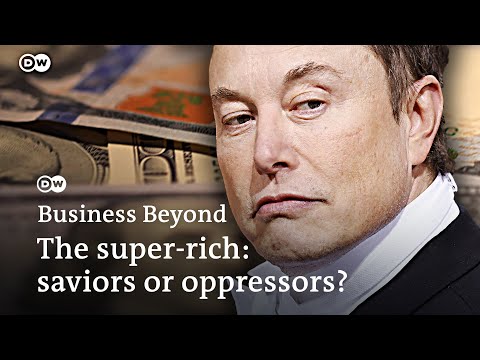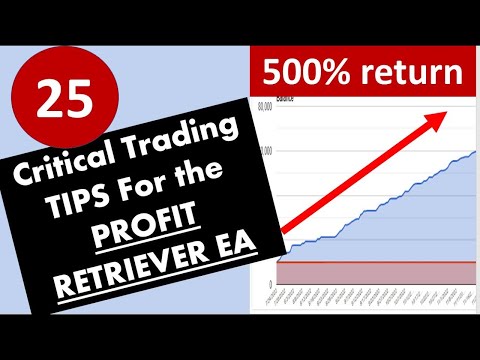The billionaire class: a threat to democracy? | Business Beyond

They hold the world in their hands. An elite class of individuals with more wealth than entire countries, and all the power that comes with it: Billionaires. “Inequality is rising to the highest levels ever seen in human history.
Where the concentration of wealth in few hands is off the charts!” “A new billionaire is created about every 26 hours. That is not normal. That's actually quite frightening.” In this video we’ll look at what it takes to become a billionaire. “They are extremely proficient in, so to say, communicating their vision, their goals, and making other people join them somehow in their mission.” We’ll ask a billionaire what it’s like to be among the world’s most wealthy.
“Growing up you're fascinated by a bunch of things that you think you want, you really want. And when the time comes and you can afford those things, they lose value very quickly.” We’ll also explore some of the dangers that wealth and power can bring. “Some people at that time started to joke that whenever you end up on such a list of the wealthiest entrepreneurs in China, you are somehow an endangered species.” And hear about attempts to fight back against the enormous inequality that billionaires represent. Those people are going to fight for their own interests and there's nothing weird actually about it. There's nothing surprising about it and we should just fight for ours.
That’s all coming up on Business Beyond. In our quest to understand the world’s wealthy, there is only one place to start: in the United States. The US is home to the superstar billionaire: the self-made man - and it’s almost always a man - who built themselves up to become rich and famous. The embodiment of the American dream. The US has produced almost all of the top 10 richest in the world, with the likes of Elon Musk, Jeff Bezos and Bill Gates achieving riches that no human being has ever achieved before - mostly through owning astonishingly profitable companies.
“In the United States today, two people have as much wealth as the entire bottom 50% of the US population. That's Jeff Bezos and Elon Musk, just two individuals, as much wealth as the bottom half.” But how did they reach this point? Do billionaires set out with the goal of becoming billionaires? “You will never become a billionaire with the motivation of just making money. It’s about winning the game of business, it’s about also building something, creating something unique, it’s also about social impact because they don’t want to be the flag in the wind, they want to be the wind. They want to have impact on their environment, on the world around them.”
The world’s richest have mostly exerted their influence through technology: be it home computing, online shopping or electric cars. “This is something also that Elon Musk and even Steven Jobs were talking about pretty often: instead of waiting for the future or trying to predict the future, we can actually create it. Right?” Their positions at the forefront of tech mean America’s leading billionaires certainly have their fans. They’re also responsible for employing hundreds of thousands - and in Amazon’s case over a million - people.
But there is also a firm movement within the United States to curb what is seen by some as the excessive wealth, and the excessive power of a tiny elite. “When you look at the Jeff Bezoses or Elon Musks or Bill Gateses or others, they live in this world in which they can increase their wealth in business, and then use some of the spoils of wealth to buy political influence, which they do. Billionaire wealth doesn't just buy you a fancy yacht or a trip to space. It also buys you a pliant media. It buys you policies and politicians in your favour, and it buys you impunity from justice. We’ve seen that enormous political influence brought by wealth play out in front of our eyes. Perhaps the best known example in the US is the Koch brothers, whose family founded America’s second biggest private company, Koch Industries. They used their
billions to directly fund political causes, such as bank-rolling Republican candidates, who support minimal government interference in their business activities. But others have found more creative ways to avoid excessive scrutiny from the state. “When mark Zuckerberg spends $300 million as he did in 2020 on securing the American election - an election he profited from making less secure by allowing this information to run rampant, hate speech, to run rampant, Nazi speech, to run rampant on his platform - when Mark Zuckerberg then turns around and does that, and gets a lot of headlines for his small gift to secure the election that he has made unsafe, what he does is he kind of douses the flames of anger just enough that he can keep doing it.
The very famous US Supreme Court justice Louis Brandeis said many, many decades ago. He said that we can either have an extreme concentration of wealth, or we can have democracy. But we can’t have both. And I think that rings so profoundly true today. Later on, we’ll look a little deeper at whether or not the wealth and power of billionaires should be reined in. But first, we need to better understand who it is we’re dealing with.
To do that, we need to head to another hot-bed of billionaires: the world’s industrial powerhouse, China. According to the Hurun Global Rich List, it is China that has the most billionaires of any country in the world, including the United States. But the story of China’s super rich goes back only a few decades.
“The whole thing started in the eighties when the Chinese government decided to first informally, and then eventually formally allow private business again. Prior to the reforms, we didn't have private enterprises.” Communist China’s conversion to a socialist market economy meant new opportunities for individuals to make large amounts of money. “Starting from the nineties, a lot of people took the opportunity for a number of reasons. One was
that they realised that those who had dared to do so already in the eighties, started to become rather rich. I mean, comparatively at that time’s level. They were far from four billionaires at the time, but we have the first millionaire. So that was quite impressive for a lot of people. [...] We then saw a new development in the 2000s and 2010s, so to speak, but especially in the 2000s where in several areas people became somewhat super rich already for Chinese standards. That was on the one hand in things related to film and media and so on. I mean, the first
celebrities that became really prominent. And on the other hand especially in technology.” And it’s China’s booming tech sector that has produced some of the most famous names in Chinese business. Names like Jack Ma - the charismatic co-founder of online retail leviathan AliBaba. But just as he was once a symbol of China’s entrepreneurial prowess, Ma has now become the symbol of what some see as China’s attempts to tame the ultra-rich.
Jack Ma all but disappeared from public view in late 2020 after giving a speech in which he criticised China’s financial regulators. It followed Beijing’s intervention to block the IPO of his digital finance firm Ant Group. “The discussion is still open, whether he knew that the winds were changing and that was kind of the last effort to, to speak out openly against this change or whether the speech itself kind of triggered the change. I tend to the former but at least after that we saw much more regulation
for the FinTech sector for technology, internet technology companies. And also then last summer, a lot of regulation coming out for other areas where some people had made a lot of money.” As a result of the tighter regulation, tycoons in China’s technology, education and real estate sectors have found themselves slipping down the rich list. Some onlookers are convinced that these individuals had accrued too much power - along with their money - for Beijing’s liking. Nowhere do billionaires have their hands more firmly on the levers of power than in Russia: home of the world’s most notorious oligarchy.
When President Vladimir Putin ordered Russian troops into Ukraine, one of the first ways in which Western allies responded was to impose sanctions on Russia’s super-rich. That tells you a great deal about how important they are to propping up Putin’s government. Another clue is in the word we use to describe Russia’s billionaires: “oligarch”. “It's a word that is actually very ancient. It goes back thousands of years. And oligarchy refers to a very special situation in which extremely wealthy people have tremendous political power.”
Russia’s super-rich largely made their money by seizing upon opportunities brought by the fall of the Soviet Union. “In the first years, starting with the late eighties going into the nineties, pretty much the only way one could become extremely wealthy very quickly was if you somehow were smart enough to be able to grab assets and to privatize them to yourself.” The unceremonious fall of Communism in Russia left huge opportunities for individuals to acquire lucrative property and resources from the state at knockdown prices. And purchases made back then shape the billionaire landscape in Russia today. “If we're talking about the very, very top, how one can make a fortune in the billions or tens of billions, it depends on what it is that your country has riches in. So for example, in the case of Russia pretty much most of the action is in things like oil, gas, things like that. So that's why we saw so many of the oligarchs around metals and natural resources.” But being a Russian billionaire can be a risky business.
Acquiring and then holding onto your wealth often means playing a dangerous game. “The more to the east you go, the more entrepreneurs are considered more maybe like gangsters or something, right? And it was really difficult for me in countries like Russia or China to find entrepreneurs who have white vests who can be role models, who didn't have any, let's say contacts to Kremlin and so on and so on.” “Pretty much the only two - and we're talking major countries here - the only two countries in the world where one is really in danger as an oligarch of being jailed are Russia and China. And you could be killed in either of those places as well, by execution or by, I guess, plutonium and other kinds of dangerous substances that might be used in the case of Russia.”
So being a billionaire in Russia can often mean watching your back… But what is it like to live the billionaire lifestyle elsewhere. For that, let’s head to India. In the year 2000, India had only a handful of billionaires. Now, some estimates put the number at over 200.
One of them is Nikhil Kamath. More than a decade ago, he and his brother set up the online trading platform Zerodha. A boom in individual Indians taking to the stock market in the past couple of years propelled the pair of them up the rich listings and into the dollar billionaire club. I asked Nikhil what motivated him at the start of his entrepreneurial journey. “Turning a profit I think was the primary goal, right? You can do many things, but you need to be profitable before you can think about being responsible with money and all of that.
So at the very beginning, the journey started with the intention of making money, turning a profit.” A modest aim to start off with, but Nikhil admits that he still ultimately had his sights on joining the ranks of India’s most wealthy. “Growing up in a middle class household. Uh, you always, as you kind of like, you know, we celebrate our entrepreneurs and societies across the world, uh, celebrate the more affluent human beings to social media, to television or movies, and the same happens here. So,
uh, growing up, definitely your subconscious is programmed to want to have what you do not have.” But now he does have it. So what is it actually like, having all that money? “The strange thing about money is, money gives you more, when you do not spend it, but know you have the ability to buy something. When you end up buying the thing you have aspired for, it becomes less valuable. And in a way, I would say money to me is freedom. It's
that ability to be able to do all these things, even though I don't actually do these things.” India is a country that’s become characterised by the yawning gap between its richest and poorest people. But more broadly, the distribution of wealth the world over is seen by some as nothing short of obscene. According to Oxfam the 10 richest people in the world have doubled their combined wealth since the start of the coronavirus pandemic - helped by soaring stock markets and our increased reliance on technology. Oxfam also points out that those same 10 people now have a combined wealth greater than that of the least wealthy 3.1 billion people on the planet.
“Do we want to live in a world in which we have such extremes of wealth at the top? At the same time that world is one in which inequality literally kills. Yes, inequality leads to unhappy, unhealthy, unfair societies, but we've been able to show how inequality itself kills. Inequality contributes to one death every four seconds. Is that a world we want to live in?” “Every billionaire is a policy failure. And it's important to say that that is not to say every billionaire's a bad person or a mean person we don’t like, or we should go lock away in a cabinet. It's just a policy failure, right? And by the way, every hungry person is also
a policy failure. And those policy failures are related to their failures of priority.” So if the mere existence of billionaires is somehow a failure on the part of humanity, how do we go about making amends for that? Well one way would be to take some of their wealth from them, and redistribute it. Basically: tax them. But opponents of those who want billionaires hit with extra taxes argue that we would put at risk the businesses and millions of jobs that they’re responsible for.
“Now imagine you own 60% of that company. You are in charge. You can decide about everything. Now you get a tax. And in order to service that tax, you would need to sell, let's say 10 or 11% of that company, right? So you sell the shares, then you lose maybe the control of the company, the new management doesn't perform that well, people lose jobs, the economy loses products or services. Does it solve any of the problems? I don't think so.” An alternative to taxing billionaires is to encourage them to share their wealth themselves.
It’s a policy China is already deploying. Doris Fischer, chair of China Business & Economics, University of Würzburg+++ “While they have to give back, so they are doing what’s good for society on the one hand, on the other hand for those companies, being somehow encouraged or forced to do charity is in the short run, maybe hurtful. But in the long run, they prefer this to tax payments because once you have a new tax for the super rich, it’s very difficult to take that back.”
Alternatively, you can just hope the billionaires will perform their own acts of philanthropy. And that’s something we do already see. Bill Gates and his then-wife Melinda pledged 15 billion dollars to charity through their own foundation during 2021, making them the world’s biggest charitable donors. But even then, activists seeking greater wealth redistribution are sceptical of the motivations of billionaires. “I don't think Bill Gates is in some narrow cunning sense trying to score a few reputational points. I think he's genuinely trying to make the world a better place in his mind. The problem is with almost no exceptions, the people in that class, when they set out to do this kind of do-gooding, even when they're earnest about it and want to do it, they tend to do it in ways that rule out any threats to their own power, right? So you don't see bill gates saying let's fix the American education system by taxing very rich people a lot more.“
Earlier we heard the existence of billionaires described as a policy failure. It begs a big question: would the world be a better place if there were no billionaires? “I think we have to be really upfront and really be quite clear to say that a world of such extreme Billionaire wealth is a fundamental problem. It's an impediment to human progress.” “The billionaire class in the world is one of the great threats to democracy and human flourishing everywhere.” Or have billionaires simply earnt their place at the top of society, and should be celebrated for that? Making someone who is a by-product of capitalism and has done well through that look like the enemy, I don’t think that’s right, because, you know, you need these people for societies to grow and economies to do better. "Billionaires are world Champions in the industry.
They've just outcompeted everybody else in the field and they look it as a game of business. And this is another motivation. They just enjoy playing this game of business.” That’s all for this episode of Business Beyond. For more from us, check out our playlist. Thanks a lot for watching and until the next time, take care.
2022-05-22 00:07


